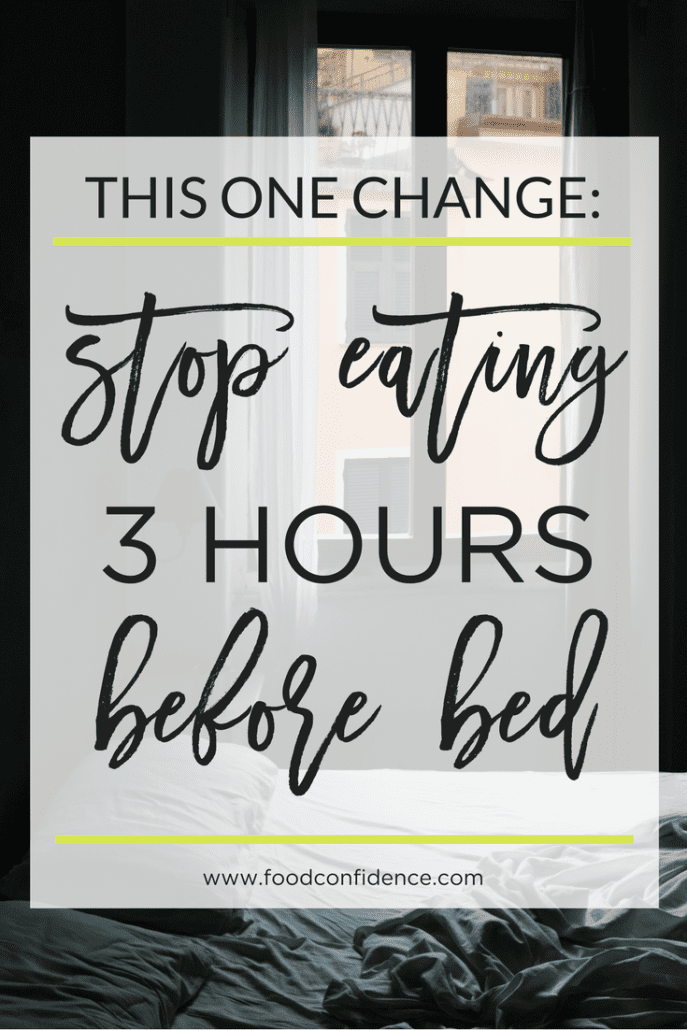Getting healthy is a process. It requires a combination of trial and error, mindset shifts, and lifestyle changes. It also takes commitment and resilience. My most successful clients know that a healthy lifestyle is the result of making sustainable changes over time. My best strategy for sustainable change is to create one new habit at a time. Trying to work on everything all at once never works, and will likely send you back to your old ways in no time flat. Your ONE CHANGE can big, small, or anywhere in the middle. The size of the change doesn’t matter, just that’s it is doable.

Most of us know that a big bowl of ice cream right before bed is not a healthy habit, but many of us sit down to a late dinner right before bed without a second thought. New research is showing us that late night eating – even if it’s a healthy dinner – isn’t great for your health.
ONE CHANGE you can make for a better night’s sleep (and a healthier body) is to stop eating three hours before you go to sleep.
Here’s why:
Your body naturally starts producing more melatonin in preparation for sleep when it gets dark, and an increase in melatonin signals a natural decrease in insulin production. Why? Because nighttime is for detox and repair, not digestion. Having high levels of insulin circulating while you’re sleeping could result in dangerously low blood sugar levels. So the decrease in insulin that follows a melatonin spike is your body’s natural way of protecting itself from low blood sugar during a period of fasting.
You can probably see where this is going now — eating right before bed is making a mess of the natural order of things. When your melatonin levels are high, your body is prepping for sleep and insulin levels drop. If you’re eating during that same time, your blood sugar level will start to rise, but insulin isn’t around to do its job. It won’t pick up again until melatonin levels decrease in the morning — leaving you stuck with high blood sugar all night long. That’s bad news if you’re at higher risk for Type 2 Diabetes.
Studies show that late night eating not only increases overnight blood sugar levels, but also brings up average glucose levels over the next 24 hours. One study of adults in Japan found that eating a late night dinner not only increased hyperglycemia, but those who ate late were more overweight than those who didn’t eat late at night – especially when that late night dinner was coupled with skipping breakfast the next morning. Unstable blood sugar is associated with a higher risk of diabetes, heart disease, obesity, and numerous other chronic health issues.
Here’s your ONE CHANGE:
Stop eating three hours before you go to sleep. It gives your body time to fully digest your food before melatonin levels spike for the night. That’s one DOABLE change you can make to be a little healthier every day and decrease your risk of chronic disease.
[Tweet “This #onechange will help you digest and repair while you get an awesome night’s rest.”]
This is one of the many incremental changes we’ll be working on throughout my Nourish For Life program, which kicks off in January! Nourish For Life is my 10-month comprehensive program that helps you take control of your health and create a lifetime of healthy habits. Registration is now open for the 2018 session and I’m so excited to see you there. Learn more here.
